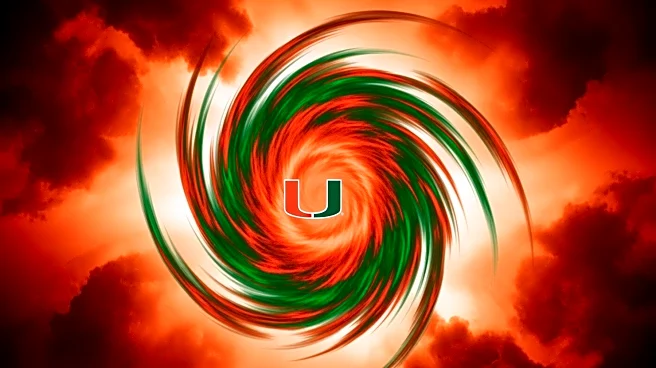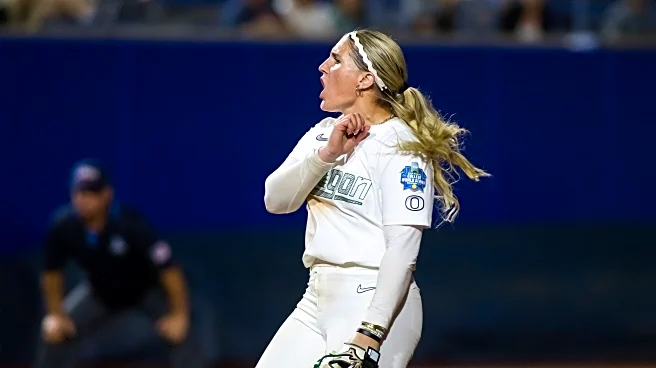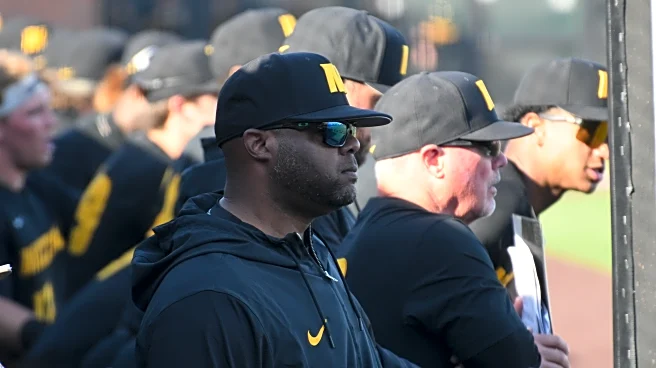What's Happening?
The Miami Hurricanes football team is set to host Louisville on Friday night, aiming to continue their unbeaten start to the season. Miami, currently ranked No. 2, has won 10 consecutive games at home, marking their longest home winning streak since moving
to Hard Rock Stadium in 2008. The Hurricanes have demonstrated strong offensive capabilities, led by quarterback Carson Beck, who leads the Atlantic Coast Conference in passing accuracy. Louisville, on the other hand, boasts the top-ranked defense in the ACC, allowing only 262 yards per game. The matchup promises to be a test of Miami's offensive prowess against Louisville's defensive strength. Miami coach Mario Cristobal has praised Louisville's team for their ability to disrupt offensive plays and force turnovers.
Why It's Important?
This game is significant as it pits two strong teams against each other, with Miami looking to maintain their perfect record and extend their home winning streak. A victory for Miami would solidify their position as a top contender in college football, while a win for Louisville could boost their standing and demonstrate their defensive capabilities against a high-ranking opponent. The outcome of this game could influence rankings and perceptions of team strengths within the ACC, impacting future matchups and playoff considerations.
What's Next?
Following this game, Miami will continue their season with Saturday matchups, having already faced and defeated several teams that have been ranked in the AP Top 25. Louisville will aim to continue their streak of defeating at least one AP-ranked opponent each season, a record they have maintained for the past three years. Both teams will look to leverage the results of this game to enhance their strategies and performance in upcoming games.
Beyond the Headlines
The game highlights the ongoing debate about scheduling college football games on Friday nights, traditionally reserved for high school football. Miami coach Mario Cristobal has expressed a preference for maintaining this tradition, suggesting that college games should be played on Saturdays. This scheduling choice reflects broader discussions about the organization and timing of football games across different levels.
















